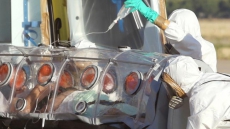Obese people without an overt manifestation of heart disease experience silent cardiac damage that fuels risk of heart failure in the future, with new research suggesting that obesity is an independent driver of heart muscle damage.
The findings challenge the commonly held belief that cardiovascular diseases seen in severely overweight people are driven by diabetes and high blood pressure, both well-known cardiac risk factors and both occurring frequently among the obese.
"Obesity is a well-known 'accomplice' in the development of heart disease, but our findings suggest it may be a solo player that drives heart failure independently of other risk factors that are often found among those with excess weight," said Chiadi Ndumele, lead investigator and assistant professor at the Johns Hopkins University in the US.
Specifically, the research showed that obese people had elevated levels of a heart enzyme known as troponin T, released by injured heart muscle cells.
Increases in levels of this enzyme corresponded to an increase in people's body mass index (BMI) - a measure of body fat based on a person's weight-to-height ratio. Levels of the enzyme rose proportionally as BMI went up.
Troponin T is the gold standard for diagnosing acute or recent heart attacks and is widely used in emergency rooms to test patients with chest pain and other symptoms suggestive of a heart attack.
For the study, investigators measured the BMIs and cardiac troponin levels of more than 9,500 heart disease-free men and women, aged 53 to 75, living in Maryland, Mississippi, North Carolina and Minnesota.
The researchers then tracked the participants' health for more than 12 years.
The findings appeared online in the Journal of the American College of Cardiology: Heart Failure.





